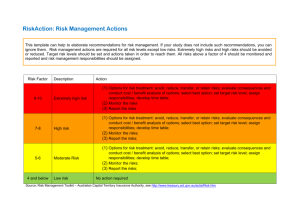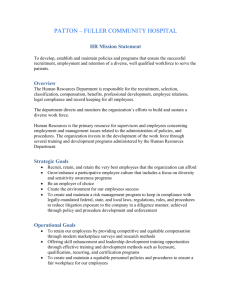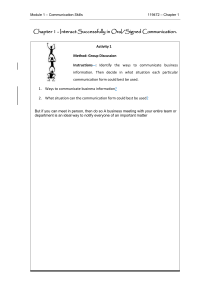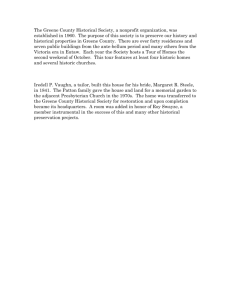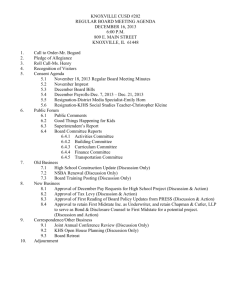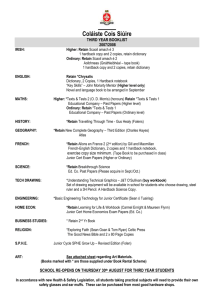Responsible Conduct in Research: Qualitative Data Management
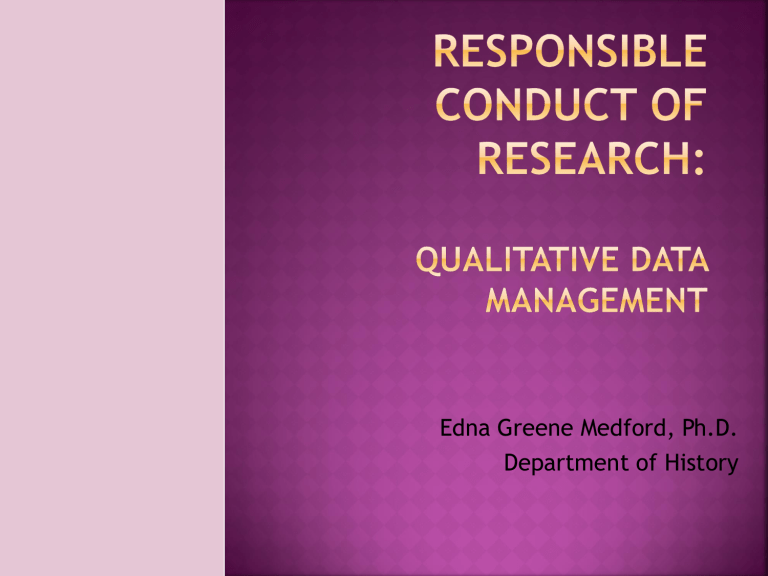
Edna Greene Medford, Ph.D.
Department of History
What data management issues have you faced? What were the immediate and longterm consequences to your research project?
How did you resolve these issues?
To ensure quality of collection
To ensure ease of accessibility
To maintain integrity of data once collected
To safeguard the privacy of human subjects
Poor quality control in data collection
Insufficient or unclear file naming system
Inconsistency in documenting sources
Incomplete field notes or recorded data
Loss of data through carelessness or failure to back up
Field notes
Transcribed interviews
Focus group transcripts
Photos
Newspapers
Government documents, laws, court records
Speeches, addresses, letters, diaries
Audio and video recordings
Observations
Establish and follow quality control procedures
Organize data into clearly delineated files
Determine storage medium
Back up copies
Ensure authenticity and version control
Determine before collection how you wish to proceed
Be clear on your methodology and aware of its limitations
Transcribe carefully and accurately
Document thoroughly
Ensure that each file/document is clearly and properly named
Abstract each file; identify themes and information relevant to your study
Cross-reference with other documents/files of similar subject matter
If digitized data, determine best medium for storage (USB drives, CDs, DVDs, etc.)
Utilize best practices for securing storage devices
If data is to be stored on hard drive, ensure that computer is secure
Identify file/document version—first draft, revised, final, etc.
Indicate what changes have been made
Retain original or older files
Select an alternative storage medium
Store at least one copy of data off-site
Retain original, non-digitized data (including notes, interview consent forms, etc.) at the conclusion of the project/research
Using your specific discipline as example, what procedures have been implemented to ensure quality control in data collection and management?

